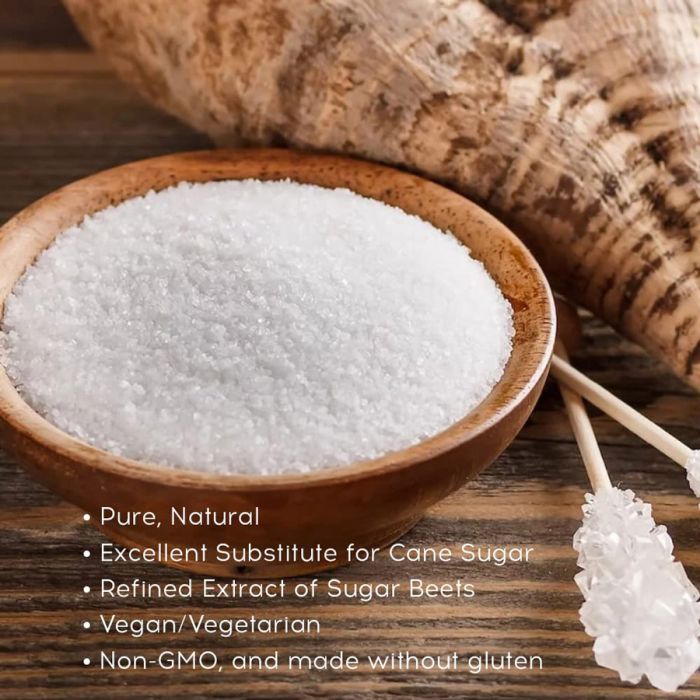The difference between beet sugar vs cane sugar extends beyond flavor to how they are harvested.
The difference between beet sugar vs cane sugar extends beyond flavor to how they are harvested.
Blog Article
Discover the Uses and Conveniences of Beet Sugar Vs Cane Sugar in Your Daily Diet
Discovering the distinctive qualities of beet and cane sugar reveals even more than just their sweetening abilities; it highlights their distinct influences on health and cookeries. Beet sugar, known for its subtle flavor, is usually favored in delicate desserts, whereas cane sugar, with its hint of molasses, adds splendor to durable meals. Each kind holds its own nutritional profile and glycemic ramifications, welcoming a deeper understanding of their duties in a well balanced diet and sustainable intake methods.
Beginning and Production Procedures of Beet and Cane Sugar

The distinct environments and soil kinds needed for growing sugar beets and sugarcane add to differences in their farming techniques and geographic distribution, influencing the business economics and sustainability of their production. beet sugar vs cane sugar.
Nutritional Comparison Between Beet Sugar and Cane Sugar
Regardless of stemming from various plants, beet sugar and cane sugar are nutritionally really similar, both mainly consisting of sucrose. Each offers about 4 calories per gram, converting to about 16 calories per tsp. Structurally, both sugars are made up of around 99.95% sucrose, with very little quantities of various other substances like moisture and trace element, which do not substantially alter their dietary accounts.

Ultimately, when choosing in between beet sugar and cane sugar based on dietary web content alone, both offer the same advantages and disadvantages as they are basically forms of the very same particle-- sucrose, supplying quick energy without other nutrients.
Influence On Health: Glycemic Index and Caloric Material
Checking out even more right into the impacts of beet sugar and cane sugar on wellness, it is essential to consider their glycemic index and caloric content. Both sugars are categorized as sucrose, which includes glucose and fructose. This make-up leads them to have a comparable influence on blood glucose degrees. The glycemic index (GI) of both beet and cane sugar is around 65, classifying them as high-GI foods, which can trigger quick spikes in blood sugar levels. This is a critical facet for individuals taking care of diabetes or those attempting to stabilize their power degrees throughout the day.
Each type of sugar has around 4 calories per gram, making their calorie web content matching. For those checking caloric intake, especially when managing weight or metabolic health and wellness conditions, understanding this equivalence is important (beet sugar vs cane sugar). Nevertheless, excessive usage of any kind of high-calorie, high-GI food can contribute to wellness concerns such as obesity, heart condition, and insulin resistance.
Environmental and Economic Considerations of Sugar Manufacturing
Beyond health impacts, the manufacturing of beet and cane sugar additionally raises significant ecological and financial concerns. Sugar beet cultivation tends to call for cooler climates and has a lower geographical footprint compared to sugar cane, which thrives in tropical areas. Nevertheless, both crops are extensive in terms of water use and land profession, potentially bring about deforestation and water deficiency. Economically, the international sugar market is highly volatile, influenced by adjustments in international trade plans and subsidies. Many nations incentivize sugar manufacturing through financial backing, skewing market value and affecting small farmers adversely.
Additionally, making use of chemicals and plant foods in both beet and cane sugar growing can result in dirt destruction and air pollution, more impacting biodiversity and neighborhood water bodies (beet sugar vs cane sugar). The selection in between cultivating sugar beet or cane typically depends upon regional ecological problems and my link financial elements, making the sustainability of sugar manufacturing a complex problem
Culinary Applications and Flavor Distinctions
While the ecological find more and economic aspects of sugar manufacturing are certainly considerable, the selection in between beet and cane sugar likewise affects culinary applications and flavor profiles. Beet sugar, obtained from the sugar beet plant, is recognized for its incredibly neutral preference. This makes it a functional ingredient in baking, where it does not change the flavor of various other elements. It dissolves quickly and is ideal for usage in cakes, cookies, and pastries.
Walking cane sugar, drawn out from sugarcane, frequently keeps molasses traces, which impart an unique richness and depth. The slight variant in moisture web content between beet and cane sugar can influence the structure and uniformity of recipes, making cane sugar a preferred option for specific recipes that benefit from its special properties.

Conclusion
Finally, both beet and cane sugar have distinct origins and manufacturing procedures, providing comparable nutritional accounts with small distinctions in sodium content and taste. While their effect on health and wellness, especially pertaining to glycemic index and calories, is similar, the option between them frequently comes down to environmental, economic variables, and particular culinary needs. Comprehending these aspects can guide customers in making educated choices that align with their health check out here goals and flavor choices.
Report this page